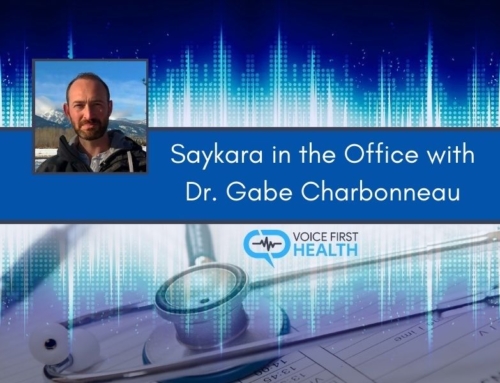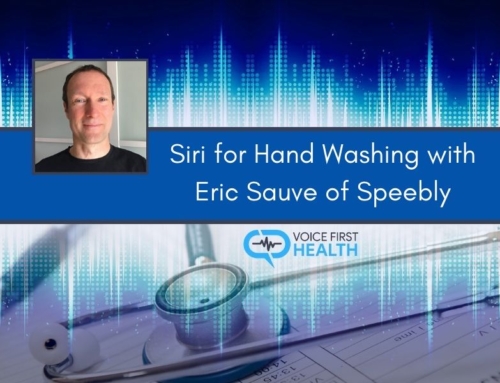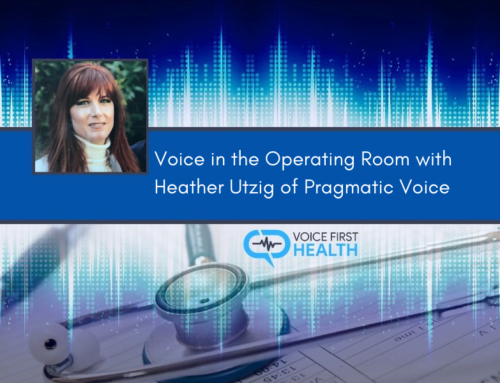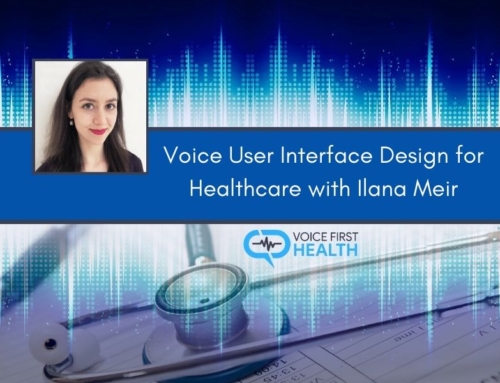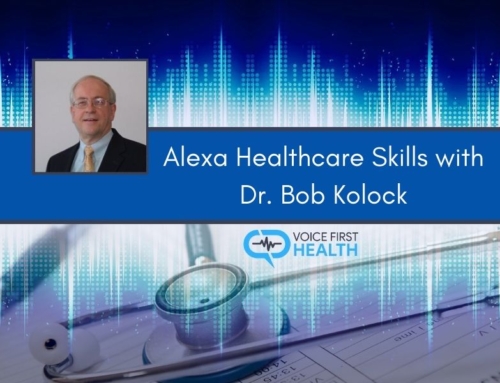VFH Episode 37
In this episode, Dr. Teri Fisher was interviewed on The Happy Doc Podcast by the host, Dr. Taylor Brana. They talk about voice technology and what Dr. Fisher is doing in the space.
The Happy Doc Podcast amplifies the voices of physicians that are doing really interesting, creative and fulfilling things that are outside of their regular medical practice. Dr. Brana has had a deep interest in aiding in the processes of medicine, healthcare, and education. Starting The Happy Doc Podcast has enabled him to learn what makes physicians fulfilled in their careers and lives.
Key points from Teri!
- Voice technology and his thoughts about where he thinks things are going in the voice technology space.
How Voice will Help Deliver the Right Healthcare to People
- Canada has a great publicly funded healthcare system, but a major issue is that people cannot access it easily. Physicians are overworked and burnt out.
- A good efficient healthcare system has 3 components; The Right Care, The Right Time, and The Right Place.
- When we can start having interactions with voice assistants in our homes, they can start to actually provide us with care in the home and at the right time (they will act as triage nurses and guide us on where to go get the right healthcare), That will be personalized, decentralized medicine.
- With the continuous adoption of smart devices with voice assistants throughout communities, more people will have their own personal healthcare provider and triage nurse for the healthcare system… in their homes!
- That would enable the efficient allocation of healthcare resources and the pressure on the healthcare system would be eased.
People’s Concerns About Voice Technology
- The biggest fear people have relates to privacy.
- People are not comfortable with the idea of voice assistants listening to them. But what about mobile phones? Some food for thought…
The Potential Impact of Voice Technology on Healthcare
- Trying to get some medical attention is always a big ordeal, but in the future, when people talk to their smart devices, the devices will use changes in voice patterns to determine whether someone is unwell.
- At that point, a device will become proactive and start asking its user questions about what could be going on. It will then start taking a medical history at that time and use its AI algorithms (that will be evidence-based) to come up with a probability of what illness the user is suffering from.
- If the device deems it fit for the user to go see a doctor, it will make a doctor’s appointment, or if not, it will make all the necessary arrangements for treatment at home.
- The potential for highly efficient healthcare with voice technology is very exciting.

Top Voice Technologies
- Teri is fascinated by the idea of vocal biomarkers.
- Vocal biomarkers are like metadata for voice, similar to the way photographs have metadata like the camera model used, the shutter speed, the location where a photograph was taken, etc.
- Vocal biomarkers will be the data that enables voice assistants to tell when there is a difference in someone’s voice and then use that to determine the person’s health.
- There is a company that did a study with the Mayo Clinic where they had people read some statements. Those people were undergoing coronary angiograms and the findings showed a statistically significant correlation between certain changes in the way they said something and the risk of coronary disease. That demonstrated that a person’s voice can be used to predict their risk of coronary disease and many other diseases. A lot of this technology is in the research and development phase.
Education and Voice
- There are different areas of education where people are developing skills to educate people about a certain condition.
- Teri loves what Dr. Brana and Dr. Desai are doing with MedFlashGo, the first voice-interactive medical question bank for medical students. It is a question bank/flashcard set geared for medical students to study for boards using just their voice.
- Physicians and medical students are in a great position right now to come up with good voice applications that will serve patients. They will need to partner with developers who are skilled in voice application development.
How to Learn About Voice
- It depends on someone’s learning style, but Teri recommends voice-oriented podcasts and flash briefings.





